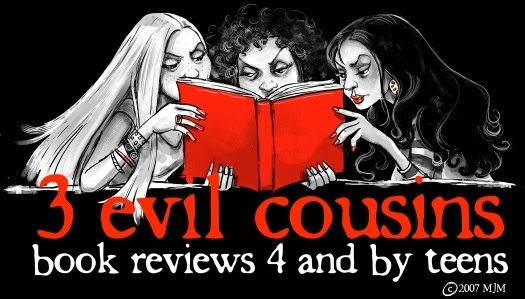
The Book Thief, by Markus Zusak, is the inspiring story of a young German girl who is growing up in the midst of World War II. Abandoned by her mother, underfed and constantly reprimanded by her loving but fierce foster-mother, Leisel Meminger is a girl who finds all the brightness of life in words. Words are her greatest love and her most infuriating enemy—words are the things that allow her to live but Hitler to control and rule.
Hitler, Leisel realizes, can change a country’s image of Jews by using words to warp them into something disgusting, malicious, and sub-human. He can take a country that is scared and off-balance, and use words to soothe and hypnotize. Hitler uses words as his single greatest weapon, and without them, he would be powerless.
On the other hand, Leisel uses words to explore and grow. She uses words and books as her sanctuary in the fear-filled world of Nazi Germany. She uses words to light the eyes of the frail Jewish man in her basement, reminding him of sunlight and happiness as she describes clouds that resemble ropes and a brilliant dripping sun. Leisel uses words to spark happiness and gain knowledge—without them, she would be powerless, too.
This tale of words and power is told in the point of view of an unlikely narrator—Death himself. Death is not God, nor does he even decide when one will die; his job is simply to carry away the souls of the deceased. The best souls, we learn, sit up to meet him, reluctant to die but accepting all the same. Death is in the perfect position make to such striking observations about death and war—he likens himself to the best Nazi, killing and killing and yet still being asked for more.
For the first half of the novel, I was fairly interested in the subject of the story and intrigued by the unorthodox choice of narrator, but was not bringing the book with me everywhere as I later would. It was no chore to read, but it was no great treat either. However, once half of the book was finished and I was now fully acquainted with the cast of characters and the author’s writing style, the story began to pick up. I found myself increasingly interested in the events that took place and by the end of the novel I was practically ripping at the pages, shaken and moved by the beautiful description and the heartfelt dialogue. The author introduced the story’s ending about three quarters in, but the warning did not dilute the power of the end, it made it more poignant. Somehow both times the ending was explained (the first merely an outline, the second fully fleshed out) it was shattering and breathtaking.
The Book Thief takes a while to get started, but once you’re hooked, you simply can’t stop reading. It’s a powerful story of loss and happiness, love and heartbreak, reading and rule and life. Four and a half evil daggers.
Yours,
Briar
Set in Germany in the early 1940’s, The Book Thief is the heartwarming a nd heartbreaking story of a foster child, fourteen books, many colors, an accordion, death, a Jewish fist fighter, a basement, two wars, a kiss, and a boy with hair the color of lemons.
nd heartbreaking story of a foster child, fourteen books, many colors, an accordion, death, a Jewish fist fighter, a basement, two wars, a kiss, and a boy with hair the color of lemons.
Liesel Meminger has witnessed more than her share of horrors. Her father disappeared when she was little, and an aura of mystery still surrounds his name. Her brother died on a train on the way to their foster home in Molching, Germany. And there are more horrors to come, though Liesel has no way of knowing. Through it all, Liesel turns to books as a refuge from the death, abandonment, and fear that fills her life, and the lives of all those around her.
Liesel’s long and illustrious career in book thievery begins with The Grave Digger’s Handbook, stolen from the snow at her brother’s burial. Next comes The Shoulder Shrug, stolen from fire. Liesel continues to steal books wherever she can find them. But her personal peace cannot last, and soon the danger of the war looms closer, lurking even within her own home, drawing her always closer to the inevitable. Liesel’s life becomes one of secrets and lies, and truth comes from the most surprising places.
This book is simply amazing. The author has a way of making the smallest details- the color of someone’s eyes, or the texture of their hair- the most important, and mystery is interwoven with every event, no matter how tiny. The unusual format, cavalier use of foreshadowing, and, shall we say, unconventional narration make the book a bit confusing in places, but really drive the point home. On the whole, this is a fabulous, yet absolutely heartbreaking book, and an unusual perspective on World War II. I give it the full five daggers, reluctant that there are no more to give.
Yours,
Tay




